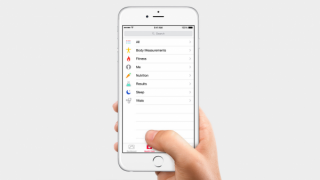Novartis launches first smartphone-enabled study in MS

Novartis has launched a research study for people with multiple sclerosis (MS) that collects data via their smartphone.
The study is not a ‘classical’ clinical trial, and doesn’t involve the testing of an investigational medicine.
Instead, the move is a step towards collecting useful real world data, which could help shape understanding of MS and how to treat it. The study could also spare patients the need for a visit to a clinic to provide an update on their condition.
The study, Evaluation of Evidence from Smart Phone Sensors and Patient-Reported Outcomes in Participants with Multiple Sclerosis (elevateMS), is designed to collect sensor-based data from physical tasks and symptoms. It aims to improve understanding of the daily challenges patients with MS can have and to uncover new potential measurements of treatment effectiveness through real-time data collection from participants in their everyday life.
[caption id="attachment_14780" align="alignnone" width="320"] Apple's ResearchKit[/caption]
Apple's ResearchKit[/caption]
The elevateMS study, which was developed in partnership with Sage Bionetworks, uses a mobile application that was built on the Apple ResearchKit platform. This digital smartphone research platform allows study participants to contribute to research from home or on the move. At the same time, it enables researchers to collect data in the participant's everyday environment.
To download the app and enrol in the study, click here.
The mobile app was designed with input from patients, neurologists and advocates. Patients were given the chance to comment on the app's user interface, what the study should measure, and how the app should track patient activity and disease symptoms.
Using smartphones, the elevateMS app will capture participant responses to questionnaires, passive and active sensor-based movement data, and functional performance tasks completed by the participants.
Participants will be able to view how their data changes over time, while researchers will use data from the study to understand what it is like to live with MS. Names of participants will be replaced with a random code, so the researchers and study sponsor Novartis won't know the individual's identity
"As physicians, we always want to know how our patients with MS are doing on the treatments we prescribe," said Stanley Cohan, MD, PhD, medical director, Providence Multiple Sclerosis Center, Portland, Oregon. "With the elevateMS app, study participants can frequently document their symptoms in a personal health story. In turn, this data may provide researchers with new ways to look at disease progression and treatment effectiveness," added Dr. Cohan, who serves as a scientific adviser to the study.
The study is currently only open to US residents, but people with and without MS are invited to enrol in the study. Once they download the app, they provide mandatory informed consent. However, participants have a right to leave the study anytime they like.
These informal arrangements for the study will limit the power of its data, but Novartis will conversely hope that the low barriers to entry will encourage large scale participation.
The chronic and progressive nature of MS means it is a prime candidate for digital monitoring and real world data collection.
Many other companies competing in the MS market have similar studies underway. Biogen launched a study in collaboration with patientslikeme in 2015, which uses tracking devices to collect and share data on their daily mobility and walking activity.
Novartis is a major player in MS, its Gilenya treatment earning $837 million and growing sales by 5% in the second quarter of 2017. It and other existing rivals face new competition from Roche's recently approved Ocrevus.











